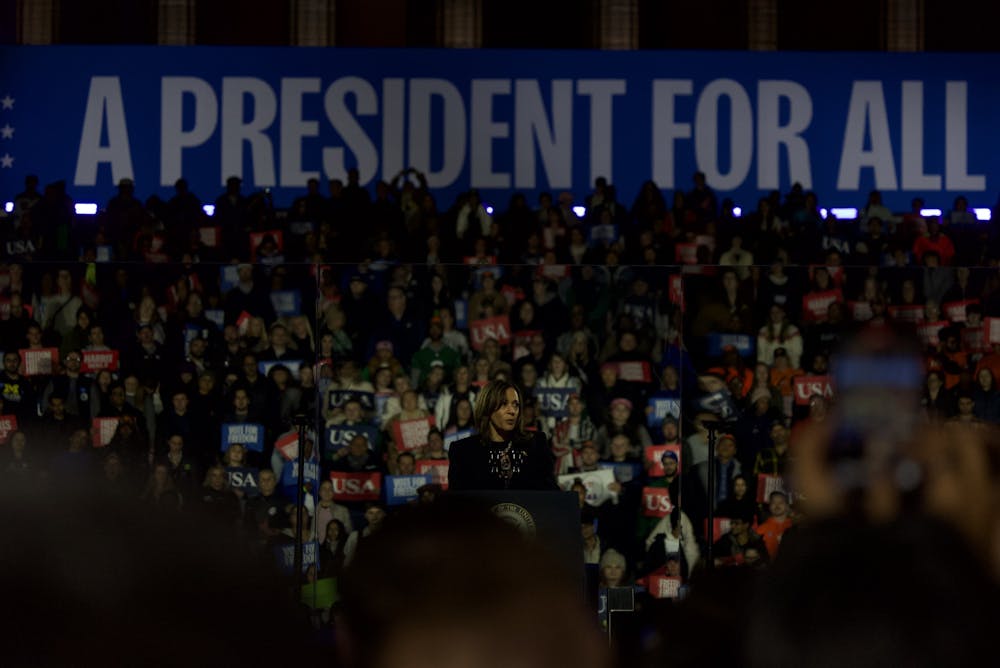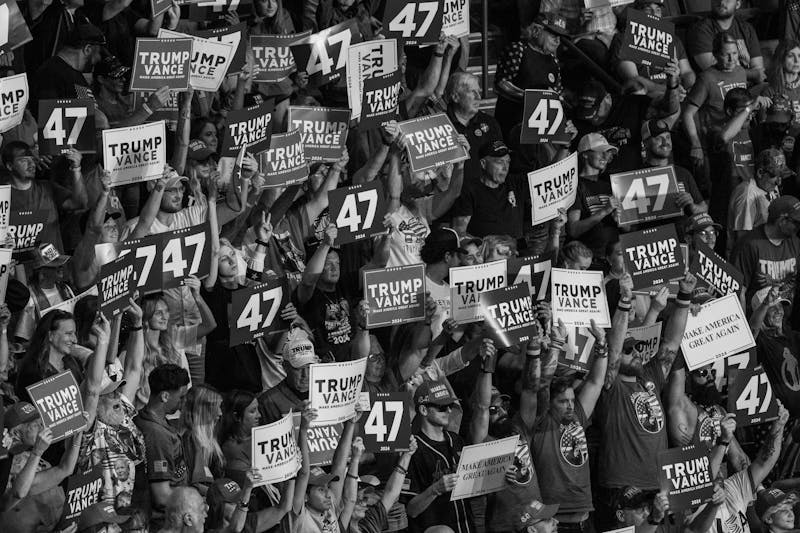
When Vice President Kamala Harris lost the election, it felt personal. As someone who rallied behind her and was so excited for what a mixed race, female president could do for this country, my heart was shattered. One step forward, two steps back. Beyond aspects of her identity that made me hopeful, I also supported many of her policies — specifically those directed at education and home ownership — and disdained what a potential Project 2025 America could look like.
On paper, Harris is significantly more qualified than 1968 Wharton graduate and president-elect Donald Trump. When a convicted felon wins an election over an individual who has worked in all three branches of government and dedicated their life to service, it calls into question what we value in our country.
Trump has consistently called Harris “stupid” and stated that she was “born dumb.” He has repeatedly questioned her race and accused her of changing it. Vice President-elect JD Vance has called Harris “trash” and added to Laura Loomer’s racist comments about Indian food in the White House by throwing in “fried chicken” to the mix. Her race has been consistently brought up by the Trump campaign in a negative and insulting manner. From purposefully butchering the pronunciation of Harris’ name in rallies and interviews and referring to her by her first name most of the time, Trump and his team have consistently disrespected her on the basis of her racial identity.
Fellow columnists at The Daily Pennsylvanian have talked about how gender played a role in this election, but the discussion of race has been much more muted. A few months ago, I addressed Trump's statement that Harris had “changed her race” as an attempt to otherize her, and that behavior continued. Whether it's individuals close to Trump making racist comments about her Indian background or his own comments questioning her eligibility to run for president as the child of immigrants, Trump has consistently painted her as the antithesis of what America is and should be.
This election showed me that the American values I hold dear — the Constitution, law and order, unity, and compassion — are not all interpreted the same by others. When I saw over 27 women come out against Trump for sexual misconduct, when I saw Jan. 6, 2021, rioters calling for the death of the former vice president, and when I heard there were “very good people on both sides” in relation to neo-Nazis marching through Charlottesville, Va., I knew what Trump stood for. I feel naive to have thought that the United States was ready for Harris.
However, this article is not meant to paint me as another college student turned political pundit, and I’d love to take a moment — amid the plethora of articles criticizing the Democrats’ strategy — to recognize some of the historic firsts that came this election cycle and talk about where we can go from here.
For the first time in history, we will have two Black women serving in the U.S. Senate. Multiple states — including my home state of Arizona — voted to enshrine abortion rights in their state constitutions, and President Joe Biden continues to appoint a record number of Black, lifetime judges to the bench— an effort Trump didn’t make.
Contrary to what some have claimed, I disagree with the notion that America is and will always be a racist country. This election outcome speaks more to the societal tendency to fear rather than embrace change. When Harris’ race was called into question and name was butchered, the goal was to paint her as different than who is truly an “American.” When all of our presidents have been men for the past 235 years, and all but one white, the majority of people didn’t want the change of pace they perceived Harris would bring.
Rather than focus on the Democrats’ call to preserve democracy, the price of everyday items on trips to the grocery store outweighed TV images of Jan. 6, 2021, for many voters. As much as racial justice and the notion of a unified, diverse America is important to me and those I associate with, it isn’t as cognisant for others.
Regardless of Harris’ policies, resume, or demeanor, many people still deemed her unqualified. From an experience angle, I can’t grasp that adjective — perhaps unqualified on the basis of race, gender, or what I suspect was a mix of the both — the majority of Americans voted to “Make America Great Again,” not make it great for the first time.
To all the people who saw themselves represented in the Harris campaign, I’d like to echo what was said in her concession speech: “Do not despair. This is not a time to throw up our hands. This is a time to roll up our sleeves.”
Carry that sentiment with you, and whether it's through civic service, participation in local politics or taking more time in your life for self-care, do what you can to improve your life and the lives of those around you. Whatever your political views, do not give up fighting for what you believe in. Be the change you want to see, and stick up for the values you hold dear.
MIA VESELY is a College junior studying philosophy, politics, and economics from Phoenix. Her email is mvesely@sas.upenn.edu.
The Daily Pennsylvanian is an independent, student-run newspaper. Please consider making a donation to support the coverage that shapes the University. Your generosity ensures a future of strong journalism at Penn.
Donate









